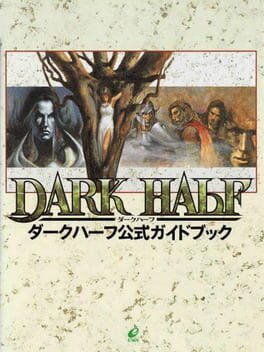

Through the Light came the Darkness, and through the Darkness came the Light. They were inseparable in the beginning, and gave birth to each other. Rukyu appeared before all the other creatures, the great demon of darkness, later to be known as the Satan. The divine hero-god Roda went up to his dark realm to defeat him, but was struck down, and presumed dead. But the hero couldn't die so easily: he swore to defeat Rukyu once and for all. Meanwhile, Rukyu doesn't just stay in his realm, waiting for Roda: he goes out to the world as a death-bringing sorcerer, and he is out for Roda... The game is quite different from most other RPGs, because it lets you play as both the "good" hero and the villain. The game is divided into chapters, and each chapter is played by either Roda or Rukyu. You switch the two heroes chapter-after-chapter, and lead them to their ultimate battle from two opposite sides. The entire game, including the battles, is viewed from an isometric perspective. The battles are random and turn-based, and the battle field is divided into squares you can position and move your characters on. Both Roda and Rukyu can have party members join them, and both attack mostly with magic. Rukyu uses a special energy called "Soul Power", while Roda cast one-time spells from scrolls he receives after battles.
Reviews View More
This looks like a pretty cool game. And it’s developed by Westone, the Wonderboy guys. Quite a turnaround! Anyways it’s an RPG played out from an isometric perspective. Battles are a little tactical, kind of like, oh, I don’t know, like Rhapsody if you’ve played that, where you move by squares and end turns and stuff.
The antagonist of the game seems to be SATAN. Which is pretty cool I guess. Those Westone guys sure don’t mess around. And the main character has a brother named Jose. Jose likes to run away from every battle. Jose is fairly useless. Damn that Jose.
The villain is a extremely powerful god-like deity that commands monsters and has close to limitless power as he retrieves the relics of his that were scattered with his imprisonment and wishes to take revenge on humanity.
On the other end, you play as a young man who is suddenly given the destiny to retrieve relics of his own to battle the evil being and save humanity from the dark one.
The biggest issue I have with the game is that whilst you can control your party members on the hero side, the monsters basically get to do whatever the hell they went, which isn't good when a creature keeps using an element against an enemy that is immune to those powers. Their AI is pretty basic which is a let down as you can't control them and they can waste their turns completely.
The story uses some judo-christian ideas of the origins of the world, but also twists them on their head which made the story genuinely interesting to me and even leads to two alternative endings that result from either end winning in the end.
An impressive, if kind of weird game, but it's certainly worth noting down for the future.
Gameplay + Stream
Sadly their biggest difference involves the weakest element, the hunger meter-like fail state of Soul Power, replenished on one side by hunting villagers and the next via special resources. While typical of their offbeat approach to systems, its effect indirectly discourages exploring and makes their lengthy, puzzle-y, somewhat cryptic dungeons even more aggravating. Nonetheless, their specialty remains the details, which one can detect and appreciate from time to time. For example, those spared or slain in the antagonist's run carry over to the protagonist's, whose subsequent actions will determine the ending. Everything here is wrapped in a sullen, almost pensive atmosphere and marked by morbid humor, mainly due to the villagers (who - on the demon's playthrough, show little panic over the ongoing massacre of their town).
It's a cool idea that's executed overall pretty well, but I think it's best played with the understanding that it has some of the jank that sometimes accompanies an RPG of its age, and should perhaps be played with a willingness to use a guide or save states every once in a while if needed. Otherwise, I think it's a very creative concept that makes for a pretty good story, and is worth playing for fans of the genre or those interested in the premise.
